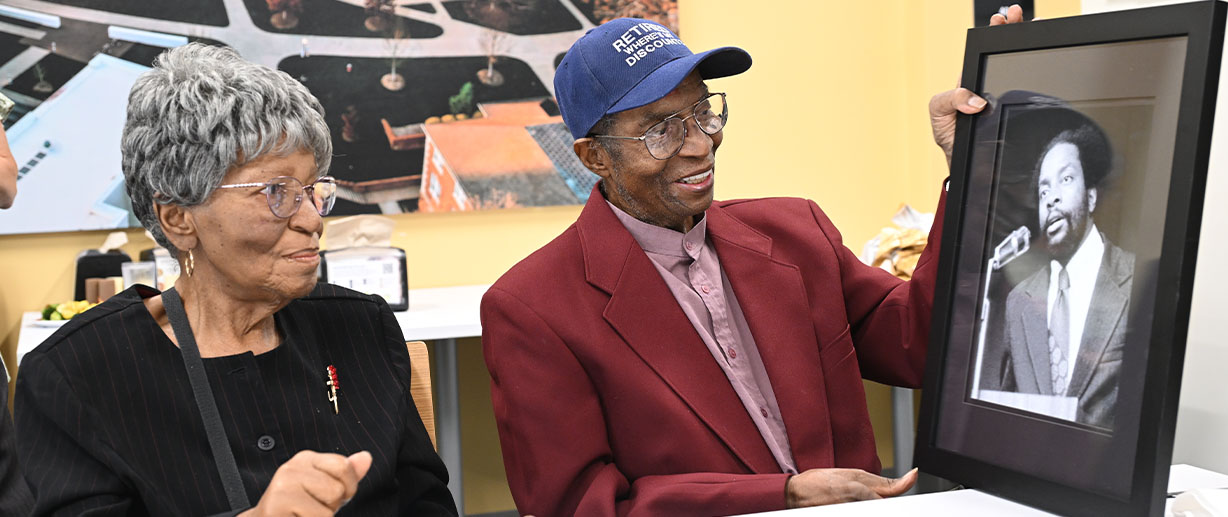The Rev. Dr. Otis Turner died on Aug. 2, 2024, at Baptist Medical Center South in Jacksonville Florida.
Turner walked onto Wofford’s campus in 1972 as the college’s first Black faculty member. His former student Bob Reeder ’74 likened Turner’s arrival to a rock causing ripples in a pond. Turner, a former assistant professor of religion, never quite knew the impact he had during his five years at the college — until August 2023, when he returned to campus with his wife, Patsy.
During the visit, he spoke with student researchers, toured the campus and reunited with former students. At a lunch in his honor, Turner was presented with a photo of himself from the college’s archives that now hangs in the faculty dining room to honor is place as a trailblazer. The college’s Office for Civil Rights, Compliance and Community Initiatives also announced that its annual faculty and staff diversity and inclusion award would be renamed in his honor.
“I did not realize it until I came back on this trip,” Turner revealed. “It’s mind boggling. I had no idea.”
Turner grew up on his family’s farm in rural Georgia and attended a one-room schoolhouse that was a four-mile walk from his home.
After graduating from high school, he pursued his bachelor’s degree in biology at Albany State University. There, he became a member of the NAACP and met the Rev. Dr. Martin Luther King Jr. and other civil rights leaders, who deeply inspired him.
After completing his undergraduate work, he taught high school for a year. Then, he joined the Peace Corps and served as a biology instructor at Mindanao Institute of Technology in the Philippines.
In 1965, Turner felt called to ministry and broke new ground as the first Black student to enroll at Emory University’s Candler School of Theology. At Emory, he was ordained in the United Presbyterian Church and earned his Ph.D. in social ethics. He was the first Black person to receive a doctorate degree from the university.
Turner taught religion at Wofford from 1972-77. After leaving the college, he served as administrator at the South Carolina School for the Deaf and the Blind. Then, he spent 10 years as the director of the Council on Church and Race for the Presbyterian Church based in Atlanta, Georgia, before later serving as the coordinator for racial justice policy development and the administrator of the Fund for Legal Aid in the Racial Ethnic Ministry Unit of the Presbyterian Church.
Turner received recognition for advancing racial justice, including the Southern Christian Leadership Conference Award, the Rockefeller Fellowship and the establishment of the Ducree-Turner Scholarship at Candler School of Theology to support students pursuing a call to serve in historically black denominations.
